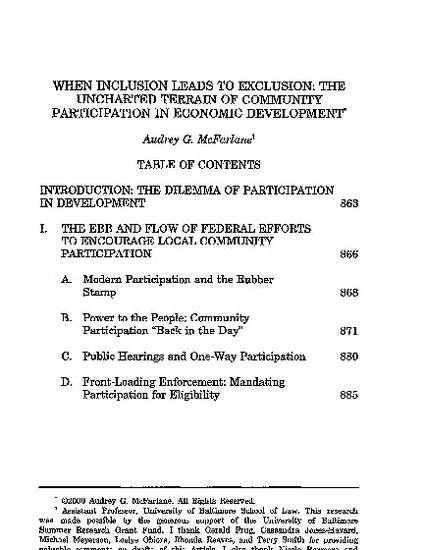
Since the advent of federally-sponsored urban development, the federal government has sought to facilitate decentralized decision-making by local governments. These federal programs have also strongly encouraged local governments to include community participation in the development decision-making process. Participation evokes notions of democracy, egalitarianism, and inclusion and it is easy to support in principle. But participation is often less easy to support in practice because of its structural disconnect with urban development. This disconnect between principle and practice has been reflected in an ebb and flow of contrastingly strong and weak mandates for participation. This ebb and flow of federally-mandated participation is particularly striking because neither strong nor weak provisions have resulted in participation that has been uniformly satisfactory to individual citizens, communities, or local governments. This Article argues that the problem is not implementational but rather rhetorical, normative, and structural and considers three types of justifications for participation: instrumental, democratic, and empowerment. The familiar instrumental or efficiency-based justifications for participation, as well as democratic or process-based justifications, are inadequate, standing alone, to justify or explain the importance of community participation in development. Instead, empowerment theories that explicitly connect participation to a redistribution of decision-making power are an important yet overlooked aspect of the basis for community participation in development. The Article suggests ways to reconcile the three theories to provide the best justification for participation as well as the substantive choices that must be made to make participatory mandates meaningful.
